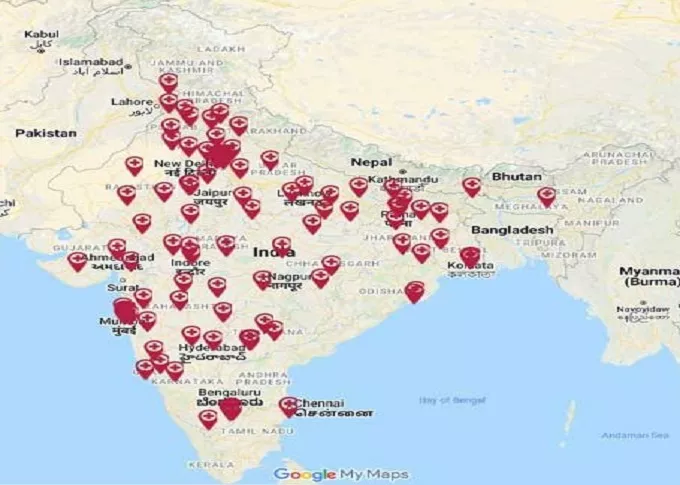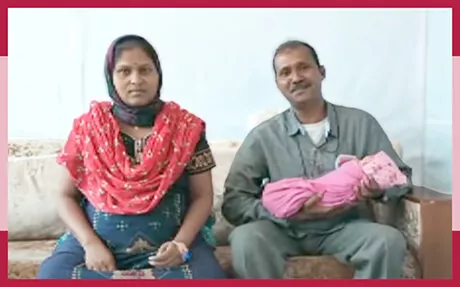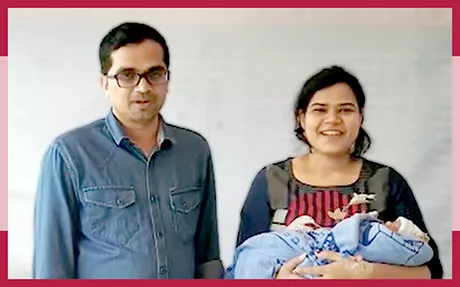Female infertility
According to the definition of the World Health Organization (WHO) infertility refers to an inability to conceive after one year of regular sexual intercourse in the absence of any contraception.
What is Female Infertility
Female infertility is a complex issue that affects many women worldwide. It refers to the inability of a woman to conceive and lead a pregnancy to term, despite having regular and unprotected sexual intercourse with a male partner for a year or more. Various factors, including age, hormonal imbalances, abnormal menstrual cycle, incapability of producing eggs, anatomical issues, and lifestyle choices, can cause infertility in females. Let’s check out what are the general causes, risk factors, and treatments for fertility problems in women.
Causes of Female Infertility
Age is one of the most common reasons for female infertility. As women age, their fertility declines, and their chances of getting pregnant decrease. Women are born with a certain number of eggs, and as they age, the quality and quantity of their eggs decrease. Women above age 40, compared to those of age 30, are at an increased risk of infertility due to their reduced ovarian reserve. Hormonal imbalances can also cause female infertility. Issues like polycystic ovary syndrome pcos can lead to irregular periods and prevent ovulation, leading to infertility. Other hormonal imbalances, like thyroid issues and high prolactin levels, can also affect a woman's fertility.
Anatomical issues can also contribute to female infertility. Conditions like endometriosis, fibroids, and polyps can affect a woman's uterus and fallopian tubes, making it difficult for an egg to implant or for sperm to reach the egg. For example, blocked fallopian tubes can cause infertility, as the egg and sperm cannot meet. Abnormalities in the structure of the uterus, such as a septum or adhesions, can also prevent implantation.
Risk Factors for Female Infertility
There are several risk factors associated with female infertility. As discussed above, age is a significant factor, as women over the age of 35 or 40 have a higher risk of infertility. Women who smoke are also at an increased risk of infertility, as smoking can damage the reproductive system and reduce the number and quality of eggs. Other lifestyle choices, such as excessive alcohol consumption and drug use, can also affect fertility.
Medical conditions such as PCOS, endometriosis, and thyroid problems can also increase the risk of female infertility. In addition, women with a history of sexually transmitted infections (STIs) or pelvic inflammatory disease (PID) are also at an increased risk of infertility, as these conditions can cause scarring and damage to the reproductive system.
Tests for Female Infertility
If a woman struggles to conceive, her doctor may recommend various tests to determine the cause of her infertility. Blood tests can be used to check hormone levels and determine if hormonal imbalances could affect fertility. An ultrasound can also check the ovaries and uterus for structural abnormalities or conditions like endometriosis or fibroids. A hysterosalpingogram (HSG) can be used to check for blocked fallopian tubes. This involves injecting a dye into the uterus and fallopian tubes and taking an X-ray to see if the dye flows through the tubes properly.
Treatment for Female Infertility
The treatment for female infertility depends on the cause of infertility. In some cases, lifestyle changes can help improve fertility. For example, quitting smoking and reducing alcohol consumption can improve women's chances of conceiving. Losing weight can also help improve fertility in women with PCOS.
In cases of hormonal imbalance, medication can be prescribed to regulate hormones and improve fertility. For example, clomiphene citrate induces ovulation in women with PCOS or other hormonal imbalances. Gonadotropins are another type of medication that can be used to stimulate ovulation.
Surgical interventions may be necessary to correct anatomical issues that are causing infertility. For example, surgery can be used to correct blockages or damage in the fallopian tubes or uterus, which may prevent fertilisation or implantation of a fertilised egg. In some cases, surgery may also be used to remove fibroids or cysts affecting fertility.
Another option for women struggling with infertility is assisted reproductive technologies (ART), which include various procedures that can help increase the chances of pregnancy. Assisted reproductive technology (ART) encompasses various procedures, such as in vitro fertilization (IVF), where eggs are extracted from a woman's ovaries, fertilised with sperm, and implanted into the uterus. Other ART methods include intracytoplasmic sperm injection (ICSI), which involves a single sperm being injected directly into an egg, and gamete intrafallopian transfer (GIFT), where eggs and sperm are deposited into the fallopian tubes. These procedures offer hope to couples facing fertility issues and enable them to achieve their dreams of having a child.
It is important to note that while surgical interventions and ART procedures can be effective in helping women with infertility, they are not without risks and may not be successful for all. Additionally, these procedures can be expensive, and insurance coverage for infertility treatment may vary. Therefore, it is important for women to carefully consider their options and work with doctors to find the best treatment plan for their situation.
Female infertility can be a challenging and emotional issue for many women and couples. While there are many potential reasons for infertility in women, including age, hormonal imbalances, and anatomical issues, there are also many effective treatments available. Women who are struggling with infertility should work with their healthcare provider to determine the underlying cause and explore appropriate treatment options, which may include lifestyle changes, medications, surgery, or assisted reproductive technologies.
At Indira IVF, we offer the right treatment and support. Many women with infertility have been able to conceive successfully and start a family. To get a Free Consultation from our Fertility Experts, call 18003092323.
Tools to help you plan better
Get quick understanding of your fertility cycle and accordingly make a schedule to track it
Get a free consultation!


















